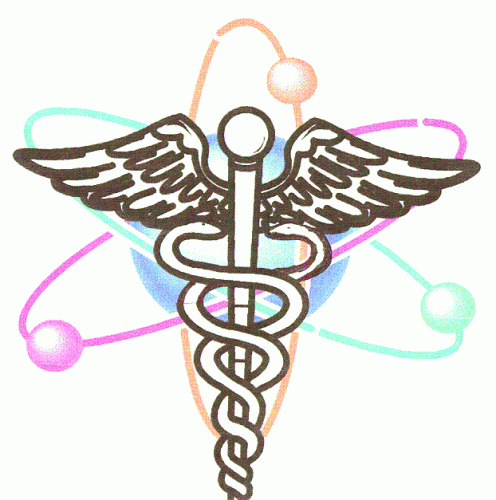Two weeks ago, I talked about the tension between empowerment and dependence in light of pervasive technological advancement in general, and its application to the body in particular. To briefly summarize, I argued that new technologies simultaneously empower us to take control over our own bodies—through bio-tracking, geographically unconstrained community support, and access to information—while embedding us in a relationship of dependence with the biomedical institution. We regain authority over bodily meanings, while relinquishing authority over bodily treatment. Taking the case of contested illness, I explained this complex relationship as a function of resources. To define embodied experiences biomedically is to actively place the body at the mercy of medical authorities whose techniques and serums remain inaccessible the subject, while opening access to insurance coverage, treatment protocols, and legal protections.
This trade-off, however (like all trade-offs), is not purely material. Rather, the empowerment-dependence tension, and the related earnestness of patient-consumers to embed themselves within the biomedical institution, has a strong social psychological component—namely, the reduction of moral stigmatization.
Erving Goffman canonically defined stigma in his 1963 work: Stigma: Notes on the Management of a Spoiled Identity as that which is socially discrediting. Here, he demonstrates that failure to meet the expectations of competent adult social actors results in marginalization, denigration, and exclusion from full social membership. He further designates moral stigma as a particularly egregious brand of stigmatization. Those with moral stigmas are understood not only as failing to adhere to social expectations, but having control over their stigmatizing status. Indeed, much of the research since Goffman shows that while all stigmatization has negative mental and physical health consequences for the stigmatized, these consequences are amplified for those with moral stigmas. Illnesses without names, seemingly unfettered bodies that fall short of social expectations, are indeed treated as moral failures.
We can think of self-medicalization then, as a tool of remoralization. To locate one’s stigmatizing characteristic within the uncontrollable, the natural, the biological, is to divorce the characteristic from the self. This decoupling shifts the characteristic (and the person to whom it is attached) from a moral aberration to a treatable subject with a contaminating (but separable) condition.
The place of technology in this remoralization is twofold, as internet technologies enable collective action and identity prosumption, and biomedical technologies offer legitimacy and a viable means of separation of the stigmatizing attribute from the embodied self.
Defining embodied experience as a medically treatable condition is not a solitary task. Indeed, as with all identity processes, this requires collaboration and negotiation. Digital information communication technologies enable information sharing, story-telling, and support without the constraint of physical co-presence. Importantly, these spaces of information, stories, and support are tangible documents through which those with shared, abnormal, embodied experiences teach themselves about who they are, and beckon others to define themselves in accordance. These spaces—sometimes called electronic support groups— are both mirrors and magnets, through which contested bodies use bits, symbols, and narratives to define themselves and others.
Self-definition, of course, is not enough. In a bureaucratic, biomedical culture, the embodied experience receives legitimacy through institutionalized channels. These channels, which rely upon a biomedical logic, legitimize those bodies whose experiential claims can be verified through traceable abnormality. Here we see the remoralizing role of biomedical technologies in general, and diagnostic technologies in particular. Biomedical diagnostic technologies act as the gatekeepers of claims-making legitimacy. It behooves the morally stigmatized to not only locate their stigmatizing attributes within the natural body, but to be able to point to the offending gene, hormone, synaptic structure, or chemical (im)balance—An ability enabled only through advanced biomedical devices.
Of course, the technical and the social cannot be separated, and these two technological forms (electronic support groups and biomedical instruments) are invisibly but inextricably intertwined. Members of electronic support groups seek out biomedical information that enables them to medicalize their embodied experiences, they use biomedical language to define themselves, and coach one another in both locating “symptoms” and expressing these symptoms to medical professionals. In turn, medical professionals create and use biomedical instruments to seek out physiological “problems” which explain embodied abnormalities, legitimizing diverse bodies as medically deviant (e.g. looking for chromosomal “defects” to explain non-binary sex characteristics).
Within a biomedical culture, our bodies, logics, and resources—both material and psychological—are rooted in a social-made technical system that simultaneously grants and strips authority, frees and limits identity meanings, constrains and enables bodily accomplishments, and empowers without offering independence.
Jenny Davis is a Doctoral Candidate in the Department of Sociology at Texas A&M University. Follow Jenny on Twitter @Jup83



Comments 4
Empowerment without Independence Part II | Flash Politics & Society News | Scoop.it — September 26, 2012
[...] Two weeks ago, I talked about the tension between empowerment and dependence in light of pervasive technological advancement in general, and its application to the body in particular. [...]
atomic geography — September 26, 2012
Excellent summary of a difficult to summarize dynamic.
In my case, I spent 3 years during which the mental health people said that psychological probelems were not the cause of my symptoms, and the neurologists said that physical problems were not the cause.
Finally a neurologist did a joint assesment with a psychiatrist, and used a then exerimental scanning method that identified the "offending" brain dysfunctions, saying "we don't know how you function as well as you do."
So I went from moral failure/crazy person to moral paragon/emotional genius, with one blast of gamma rays.
You might develop the crazy/sane assessment alongside the moral/immoral assessment in your analysis.
I never used the electronic support groups because they just ended up scaring me more than I already was.
As far as "independence" goes, the word needs more definition. Any social definition of "independence" makes assumptions about how much/little social and financial supports are part of the base line. Differendnt people make different assumptions about this.
Again, excellent piece.
Empowerment without Independence Part II » Cyborgology | The Sociology of the Quantified Self | Scoop.it — September 29, 2012
[...] [...]